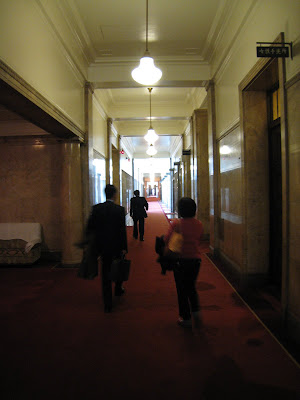About Japanese schools and daycare

Primary school English classes to start early
About 40 percent of Tokyo's wards and other big cities plan to conduct English lessons at least once a week at primary schools for fifth- and sixth-graders from April. Under the new school curriculum guidelines, English lessons for fifth- and sixth-graders will become compulsory from academic year 2011.
The cities and wards will hold 35 lessons or more each year, or at least one lesson per week, from April, ahead of the subject's official launch. Each lesson will last 45 minutes.
Meanwhile, some local governments such as Osaka and Hamamatsu, Shizuoka Prefecture, will conduct nine to 12 classes a year, or one class per month.
Minato Ward plans to hold 70 lessons a year for both grades, working out at a two lessons per week. This is the largest number of lessons planned among the 40 municipalities surveyed.
Twelve municipalities, including Kawasaki and Katsushika Ward, plan to have 15 to 35 classes a year.
Osaka plans nine classes, while Sapporo aims to hold 10. Shizuoka and Hamamatsu both plan to have 12 classes.
Tokyo to tighten nursery rules
The Tokyo metropolitan government likely will adopt stricter procedures from April in its certification of private nurseries, while keeping a closer eye on facilities that already are operating, it has been learned.
The current certification system--which has less stringent standards than those used by the national government--was established to encourage more corporations to enter the market. (NOTE: what is the use of national standard if local government can choose not to use it!?)
The metropolitan government's certified day care facility system started in 2001 in a bid to reduce the number of infants on waiting lists. As a result, the number of day care facilities in the capital increased to about 430. The move attracted attention as a model case involving the relaxation of regulations.
However, misconduct by certain facilities came to light last year. A certified nursery in Nakano Ward closed suddenly due to financial difficulties, and a trio of scandals emerged in which the metropolitan government asked for subsidies to be returned due to false claims by facilities over staff numbers.
To prevent such misconduct, the metropolitan government plans to ask operators to submit financial reports during the early stages of the application procedure, and plans to inspect the facility within three months to confirm whether staff numbers tally with those claimed in the application.
In the past, initial inspections were usually conducted 18 months after a facility had opened. For the first time, inspectors will include a nursery teacher and a nutritionist.
At a metropolitan assembly last year, an assembly member reportedly pointed out that the cost of foodstuffs used at some certified day care facilities was extremely low. Therefore, the government also likely will step up its checks on the quality of the food served at such facilities.




























